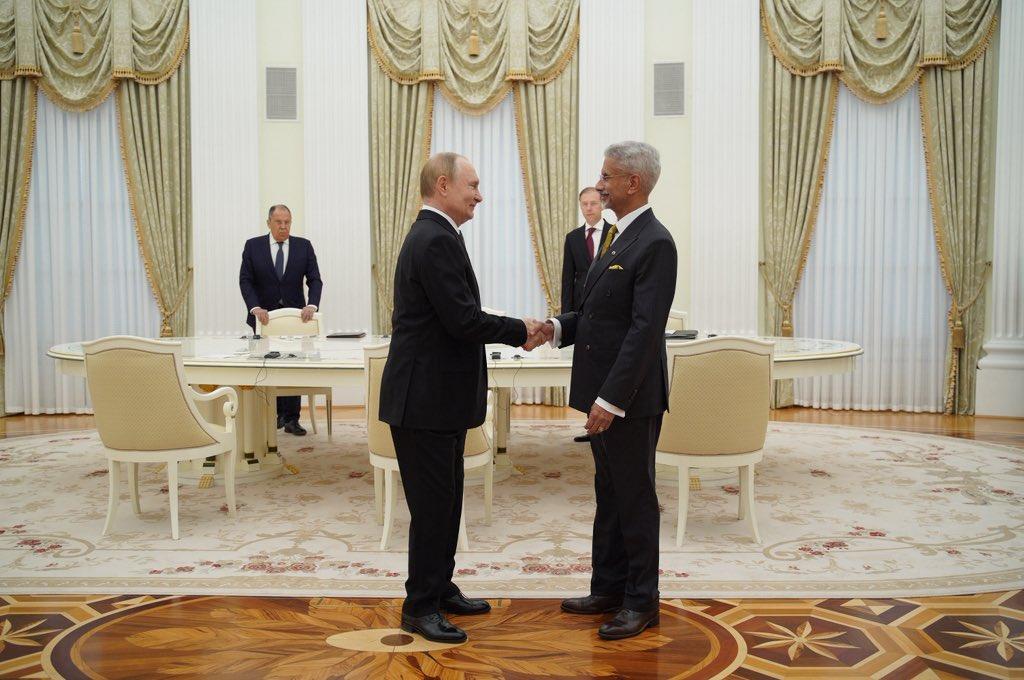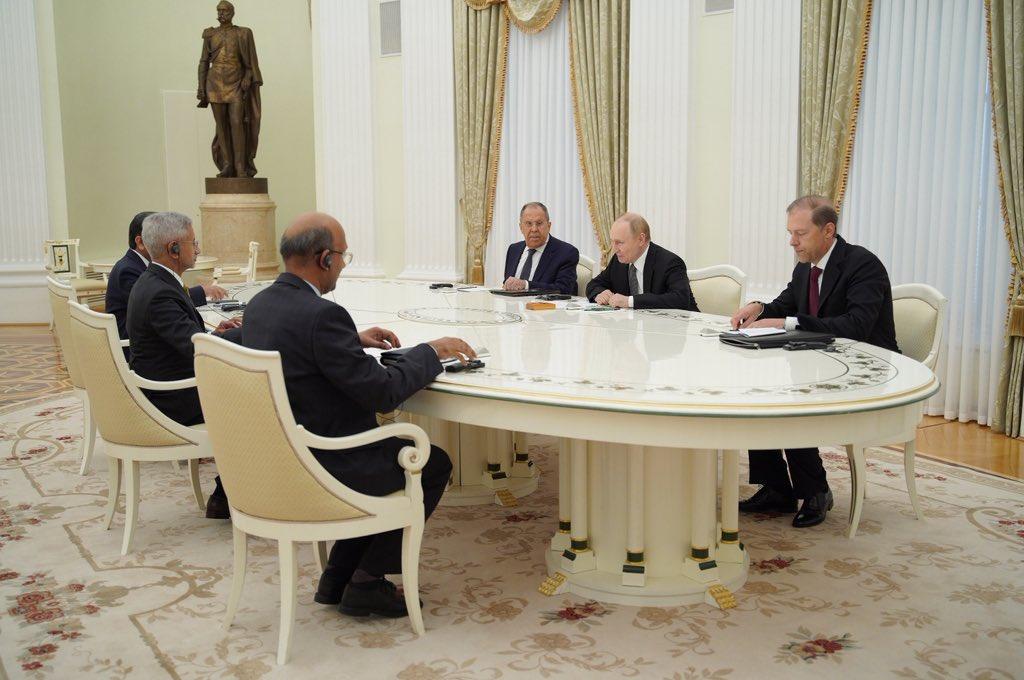
Moscow witnessed a significant round of talks between Indian External Affairs Minister S. Jaishankar and Russian Foreign Minister Sergey Lavrov, setting the stage for President Vladimir Putin’s much-anticipated visit to India later this year. Both diplomats briefed the media on Thursday after their high-level discussions, touching on a wide range of issues from energy cooperation to regional stability, underlining the depth and resilience of India-Russia relations despite global geopolitical pressures.

Lavrov confirmed that Russian President Vladimir Putin is expected to visit India by the end of the year. The announcement signals the importance Moscow attaches to New Delhi as a strategic partner, particularly at a time when global alignments are undergoing rapid change. Preparations are already underway to ensure that the upcoming Modi-Putin summit in Delhi delivers substantive outcomes that further cement the long-standing partnership.
One of the highlights of the joint press briefing was Jaishankar’s firm response to U.S. criticism over India’s continued import of Russian oil. He pointed out the contradiction in Washington’s stance, noting that for years the United States encouraged India to stabilize energy markets, including through Russian oil purchases. “Now, we are being criticised for the very same action,” Jaishankar remarked, adding that energy security remains a non-negotiable priority for India.
Trade and connectivity featured prominently in the discussions. Both countries are focusing on strategic trade routes that are poised to shape the future of Eurasian connectivity. These include the Vladivostok-Chennai Maritime Corridor, the International North-South Transport Corridor, and the Northern Sea Route. Each of these corridors holds immense potential to enhance trade efficiency, reduce transport costs, and open up new markets for both nations.
Energy cooperation remains at the heart of the India-Russia partnership. Lavrov highlighted ongoing efforts to explore joint ventures in Russia’s Far East and Arctic regions. With vast untapped reserves of oil, gas, and minerals in these regions, collaboration between the two countries could yield mutual benefits, ensuring long-term energy security for India while boosting economic development in remote Russian territories.
The talks also reflected a clear alignment on broader geopolitical and security issues. Both Jaishankar and Lavrov emphasized that India and Russia remain united against all forms of terrorism. They reiterated the need for stronger international cooperation to combat extremist ideologies and cross-border threats.
Labour and workforce cooperation emerged as another important area of discussion. Jaishankar underlined that India’s skilled workforce is well-positioned to address labour shortages in Russia. With expertise in IT, engineering, and construction, Indian professionals are expected to play a key role in filling critical gaps in Russia’s growing economy, particularly as it seeks to modernize infrastructure and expand technological innovation.
On the issue of Ukraine, Lavrov stated that President Putin is open to meeting Ukrainian President Volodymyr Zelensky, but only if the agenda is well-prepared and capable of addressing high-level issues comprehensively. However, both diplomats pointed to growing obstacles, with Jaishankar noting that Ukraine’s current stance appears to undermine U.S. President Donald Trump’s peace efforts. Lavrov added that proposals from Europe advocating foreign intervention in parts of Ukrainian territory were absolutely unacceptable to Russia.
As the talks concluded, it was clear that India and Russia are not only strengthening bilateral cooperation but are also aligning their positions on key global issues. From energy and trade routes to counterterrorism and conflict resolution, the discussions showcased the multifaceted nature of the India-Russia relationship. The upcoming Putin visit to India will likely serve as a milestone in advancing this partnership further, setting the tone for a deeper engagement in an increasingly multipolar world.
At a time of uncertainty in global politics, the Moscow talks reinforced the enduring nature of India-Russia ties. Both nations appear determined to chart an independent course, prioritizing mutual interests and long-term strategic goals over short-term geopolitical pressures. With critical areas of cooperation identified and key deliverables in sight, the Modi-Putin summit later this year is expected to produce concrete results that could shape the future trajectory of the partnership.




